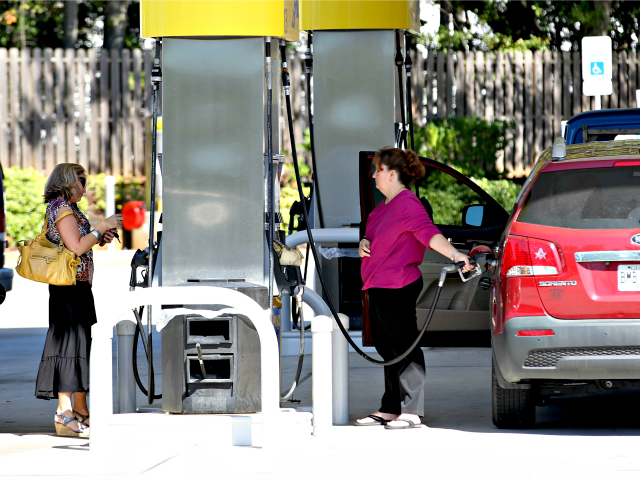As Congress continues to mull a bipartisan infrastructure deal, the U.S. Chamber of Commerce and other establishment groups are pushing a regressive gas tax that would harm low-income Americans the most.
House Speaker Nancy Pelosi (D-CA) and Senate Minority Leader Chuck Schumer (D-NY) will meet with President Donald Trump next Tuesday to discuss a possible bipartisan deal on revitalizing America’s infrastructure. Pelosi said that she remains “very optimistic” about finding common ground on the issue.
As the White House and congressional leaders prepare for next week’s meeting, influential groups on the left and the right, such as the U.S. Chamber of Commerce and the labor group AFL-CIO have deployed their lobbyists, urging lawmakers to raise the federal gas tax by 25 cents per gallon over five years.
Edward Mortimer, the chamber’s vice president for infrastructure, said in March the gas tax remains the only tax increase they have suported.
Mortimer said, “This is the only tax the U.S. Chamber has ever supported increasing. This is going to be a tough thing, but it’s time for a tough vote.”
Advocates for a gas tax increase argue that 25 years have passed since the last gas tax hike, the gas tax does not pay for current road and transit expenditures, and economic growth requires a modern transportation system. Skeptics of a gas tax increase charge that it serves as a regressive tax which hurts low-income Americans the most, especially in a world where more affluent Americans continually purchase electric cars that do not require one to pay for gasoline, avoiding the tax altogether.
Rep. Brendan Boyle (D-PA), a and member of the House Ways and Means Committee, said that “infrastructure remains the single best chance of a major bipartisan piece of legislation that passes and is signed by the president.”
As many Republicans and Democrats remain optimistic about a bipartisan infrastructure deal, another bipartisan coalition of lawmakers has emerged over the last few years, and they have a proposal that would raise funds for infrastructure–all without raising taxes on low-income Americans.
Last year, Reps. Mike Kelly (R-PA), William Lacy Clay (D-MO), and Ted Budd introduced the GAIN Act, which would require the Department of Agriculture to sell its distressed assets and use the proceeds to develop infrastructure in communities below the poverty line. Reps. Warren Davidson (R-OH), Sheila Jackson Lee (D-OH), Frederica Wilson (D-FL), and Alex Mooney (R-WV) all co-sponsored the bill. Lawmakers ranging from the Freedom Caucus, the Republican Study Committee, to the Congressional Black Caucus also cosponsored the bill.
In an interview with Breitbart News Saturday last year, Kelly said that President Trump backed the legislation.
“You know what? Great idea, great idea. I can’t tell you how many times I’ve done that in my business life and you do get ahead,” Trump reportedly said during the meeting between himself and Kelly.
“He said, ‘Get it to me, and I’ll sign it,’” Kelly added.
Sean Moran is a congressional reporter for Breitbart News. Follow him on Twitter @SeanMoran3.

COMMENTS
Please let us know if you're having issues with commenting.